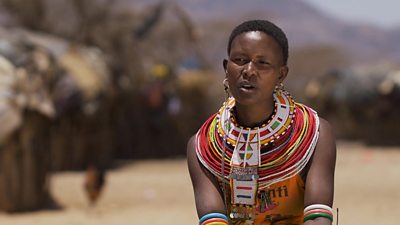As drought threatens traditional pastoral communities in Kenya and Somalia, we are supporting media programming that can help families adapt. Here is what we did to earn an Averted Disaster Award special recognition.
Earlier this year, the World Meteorological Organisation forecast yet another below-normal rainfall for Kenya and Somalia - the sixth consecutive season of poor rains in the last three years.
The resulting drought has left an estimated 3.5 million people severely food insecure, and devastated the herds of traditional pastoral groups. An estimated 1.5 million animals have perished from depleted pastures and diminished water sources. In Marsabit, Samburu and Turkana counties in Kenya, over 90% of open water sources had gone dry, as of spring 2022.
But information can help people make critical decisions and cope. And in these three worst-affected counties, families and communities have reported that they have been able to start kitchen gardens, harvest rainwater, improve how they manage their herds, and take other measures to help adapt their lives and livelihoods – because of stories shared and information they have learned through radio.
Joining up to provide essential weather and climate information
���Ͽ�����¼ Media Action has brought together media professionals and scientists to improve communication around essential weather and climate information, ensuring that it reflects people’s voices and needs. Our projects, Weather Wise - part of WISER, funded by the UK Met Office with back-funding from the UK Foreign, Commonwealth and Development Office; and Down2Earth, a consortium funded by the European Union – have built on tested methods of mentoring journalists and broadcasters using the editorial standards and principles of the ���Ͽ�����¼, while forging stronger connections with local climate scientists and Met officers.
Our first project, Weather Wise, addressed the existing disconnect between climate scientists, broadcasters, and their audiences. Climate scientists often produce technical research findings and projections, but farmers and pastoralists need information in simple, accessible local languages that they can apply to everyday challenges. A temperature provided in degrees Celsius means little to someone used to predicting weather using traditional methods and unaccustomed to reading a thermometer. And, despite efforts to improve weather and climate services in East Africa, our formative research found that their engagement with ordinary people is still relatively low due to the lack of reach, relevance, and accessibility.
Weather Wise approaches
Our Weather Wise project aimed to close this gap by improving access to, and knowledge of, climate and weather information amongst farmers, fishermen and pastoralists in Kenya, Uganda and Tanzania, through:
- Training and mentoring: Working with 10 local radio stations, we built the skills of media professionals from these three countries on effective communication of weather and climate information – ensuring they keep practical decision-making in mind. Working to editorial standards and values of the ���Ͽ�����¼ we conducted in-house and remote training on topics such as appropriate formats, story packaging, and how to increase audience engagement.
- Relationship building: We supported local journalists to build networks with climate scientists, Met officers, agricultural extension workers and others essential to telling stories about climate change. Over time we persuaded these officials that investing their time speaking to and co-producing content with local journalists was an effective strategy to reach their target audiences.
- Encouraging partnership: We held workshops to bring together journalists and climate scientists – many of whom had not previously worked together – to forge new partnerships and networks, encouraging the co-production of high-quality climate media content.
- Audience feedback: We used our research with audiences to understand what radio content they found most useful and worked with the journalist to improve the content based on audience feedback. Our research showed station managers that their audience needed and appreciated this type of content and that they were using it to make decisions to improve their lives.
In our Down2Earth follow-up project, we worked with five broadcasters focused on Marsabit, Turkana and Samburu counties. For this project, we first built an understanding of media consumption, knowledge and attitudes in rural communities through research. We followed that with capacity-strengthening with local radio station partners through training, mentoring, equipment donation and building links with local climate scientists. Broadcasters then produced media content focusing on water scarcity, food insecurity and climate adaptation.
What our research found
Following both projects, our researchers found that listeners to these radio programmes understood climate change and its impacts, and were able to list actions they learned which could help them improve their livelihoods. For example, pastoralists spoke about evacuating livestock and families at times of heavy rainfall and flooding.
While some doubted the accuracy of weather forecasts, all listeners surveyed said they understood the importance of listening, and how the forecast can help them prepare. And even when limited finances prevented greater actions, listeners said they were able to apply their learning to some extent to help prevent losses.
As the drought continues, many in these communities are now benefitting from an improved ability to cope with extreme weather, from the information and inspiration they have received through radio.
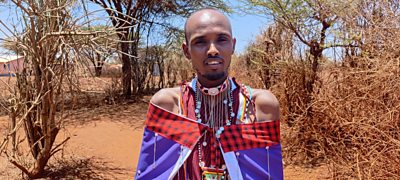
Stories from our communities
“Being a pastoralist, there are a lot of challenges... such as lack of water and pasture ..People need to be trained and to gain skills so (they can) cope with the situation. I would encourage the youth to use social media and radio stations to gain information, especially on climate change …I have really learned some skills...I started a kitchen garden, and water harvesting.” — Wambaz, 25, an artist, radio presenter and farmer in Marsabit, Kenya
“The topics they discuss are relevant because they share information I need. I have learned a lot from the stories they share. I know that if I do certain things I will benefit, and I also know that if I continue to listen to it then it will benefit me, my household and my life in general.” —Female, Taru, audience member of Serian FM
“I heard them saying on radio that seasons have changed and that we should not just plant maize as we mostly do but plant other crops like sweet potatoes and kunde (cowpeas) that don’t require a lot of rain and that mature within a short time. I also heard them say that we should move our livestock to safer grounds to prevent them from being washed away by flash floods. Before I never used to have this knowledge and used to be caught unaware with rains when livestock were grazing away from home.”— Male listener of Jangwani FM, Logologo, Kenya
Essential components
This intervention, carried out over several years amid severe drought, can be easily replicated and scaled up to cover vast areas. We know from experience that people in even the most remote and rural locations can be reached where they are, through radio. Even in areas with little to no access to media, the provision of solar-powered or wind-up radios, loaded with content and shared with listening groups, ensures communities are reached with information that can be shared with others in participants’ families, communities and social networks.
Media and communication are essential in any climate action to reduce and mitigate risk. They work at speed, scale and low cost to reach audiences with timely, relevant and trusted information in languages they understand, to help them make critical decisions for themselves and their families. The information imparted in these projects will help families better cope with ongoing drought and extreme weather patterns – including through longer-term adjustments to their livelihoods for better economic security.
Learn more about the (leads to third-party site).
About our East Africa climate work
-
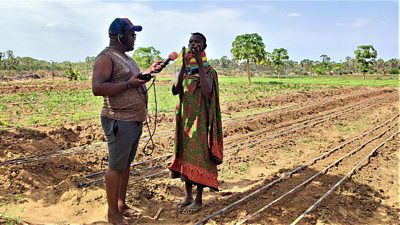
The Living Climate Change Africa podcast
Features voices from across East Africa on the frontlines of climate change. -
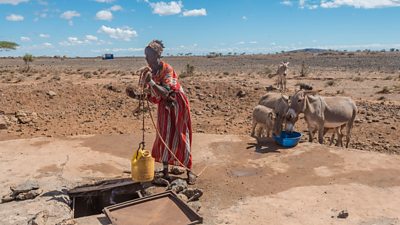
Down2Earth - learn more about the project
We provided local journalists with editorial and technical support to produce content on weather and climate issues, with a focus on water scarcity, food insecurity and climate adaptation. -
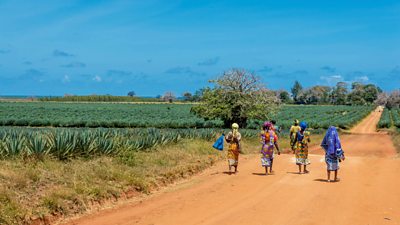
WeatherWise - learn more about the project
Through improved climate and weather journalism, we're aiming to help farmers, fishermen and pastoralists in three countries in East Africa to better prepare for weather events. -
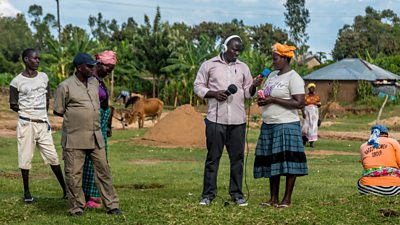
Reporting effectively for climate action - a course for journalists
Check out our MOOC on climate change reporting - now available in French and Swahili!
